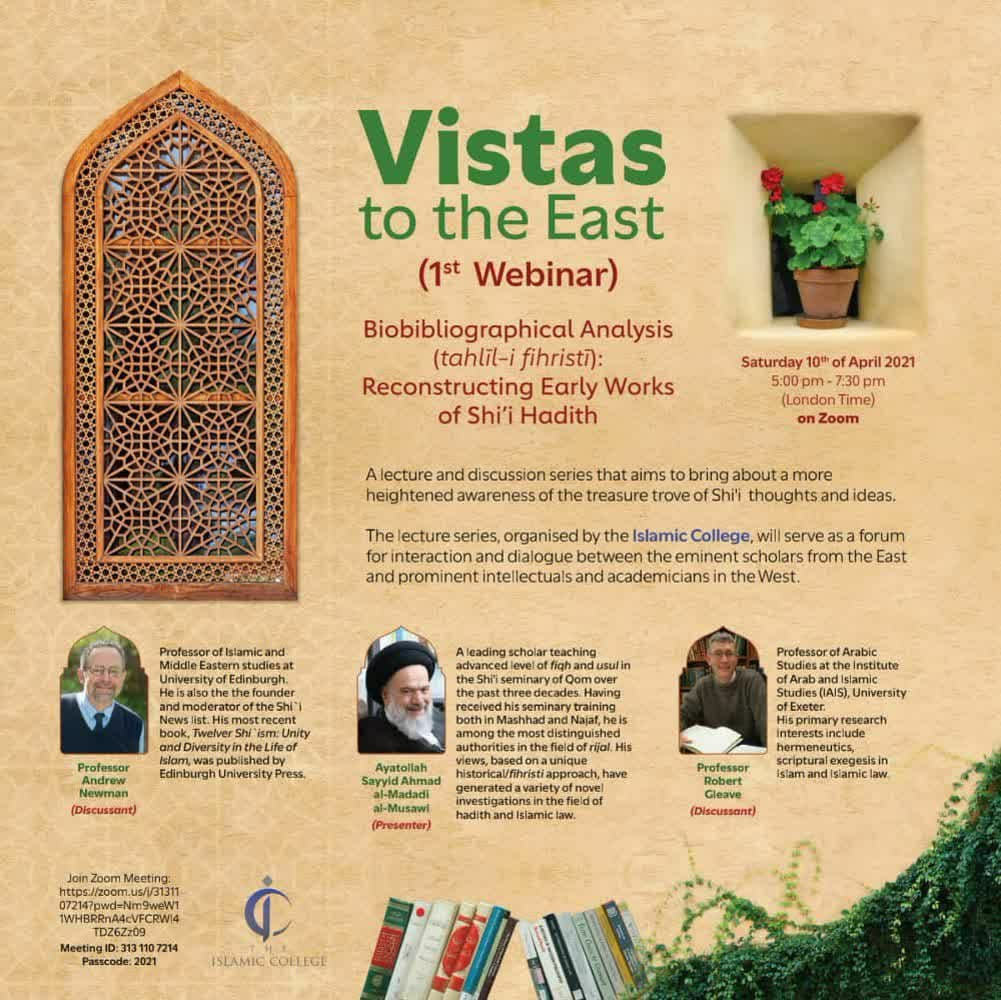This is the lecture series organized by the Islamic College, will serve a forum for interaction and dialogue between the eminent scholars from the East and prominent intellectuals and academicians in the West.
A lecture and discussion series that aims to bring about a more heightened awareness of the treasure trove of Shi’i thoughts and ideas.
The webinar, organized by the Islamic College, will be held on Saturday, 10th of April 2021, 5 pm to 7 pm (London Time) on Zoom.
The meeting presenter is Ayatollah Sayyid Ahmad al-Madadi al-Musawi and discussants are Professor Andrew Newman and Professor Robert Gleave.
Ayatollah Sayyid Ahmad al-Madadi al-Musawi
He is a leading scholars teaching advanced level of Fiqh and Usul in the Shi’i seminary of Qom over the past three decades. Having received his seminary training both in Mashhad and Najaf, he is among the most distinguished authorities in the field of rijal. His views, based on a unique historical fihrist approach, have generated a variety of novel investigations in the field of hadith and Islamic law.
Professor Andrew Newman (Discussant)
He is Professor of Islamic and Middle Eastern studies at University of Edinburgh. He is also the founder and moderator of the Shi’i News list. His most recent book, Twelver Shi’ism: Unity and Diversity in the Life of Islam, was published by Edinburgh University.
Professor Robert Gleave (Discussant)
He his professor of Arabic Studies at the Institute of Arabic and Islamic Studies (IAIS), University of Exeter. His primary research interests include hermeneutics, scriptural exegesis in Islam and Islamic law.
Click Here To Join the Webinar.
Passcode: 2021

 Ijtihad Network Being Wise and Faithful Muslim in the Contemporary World
Ijtihad Network Being Wise and Faithful Muslim in the Contemporary World
